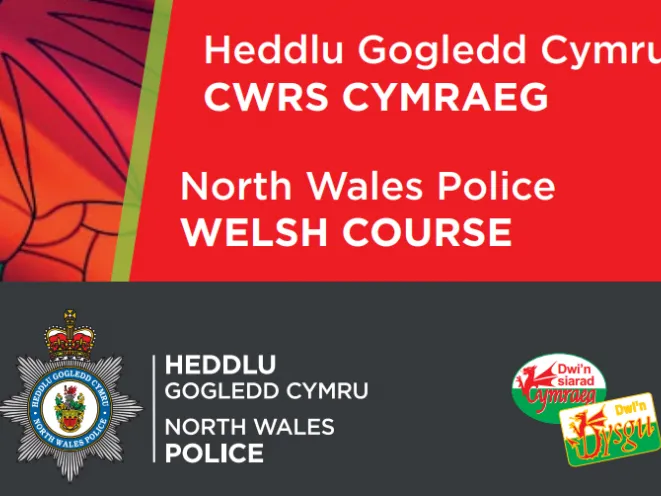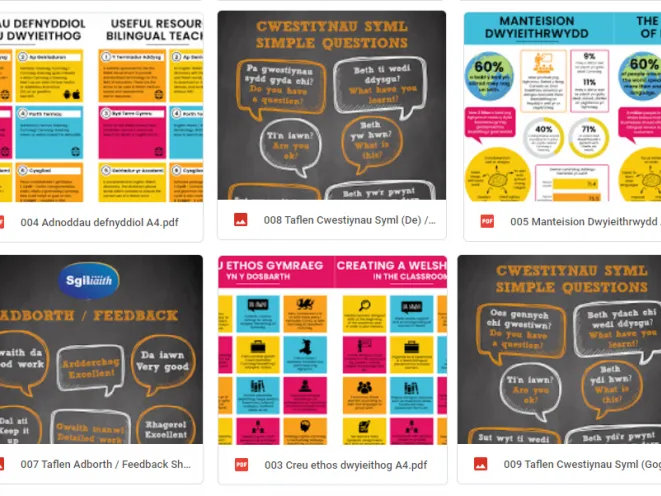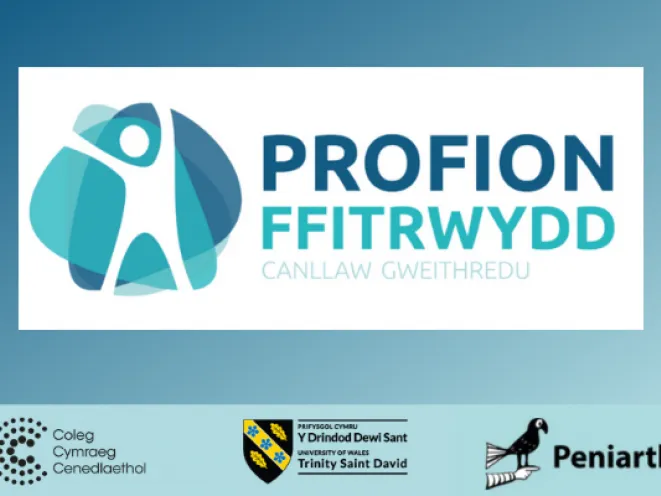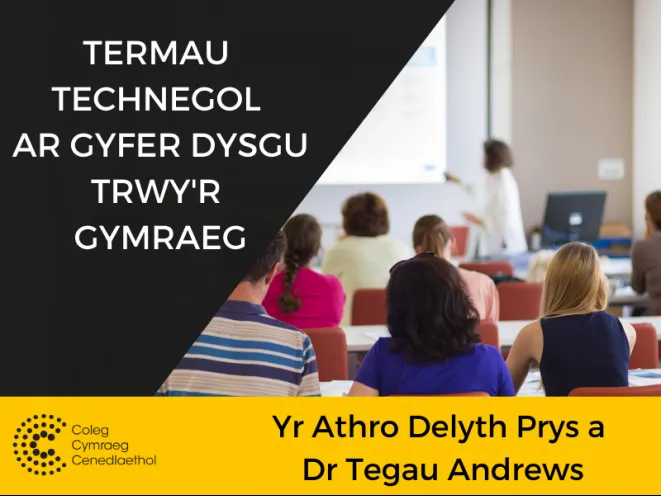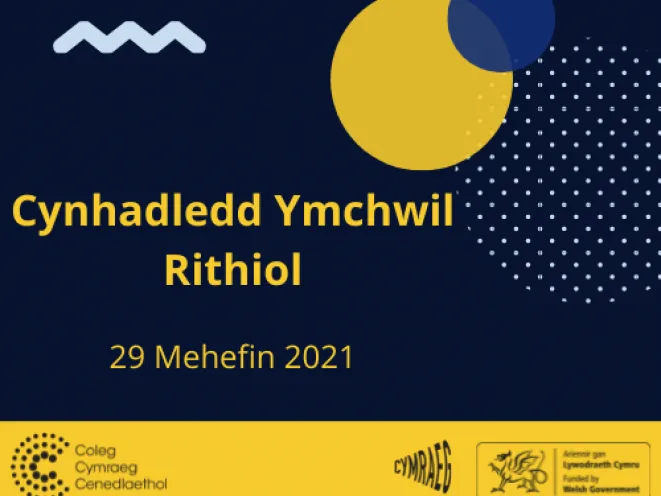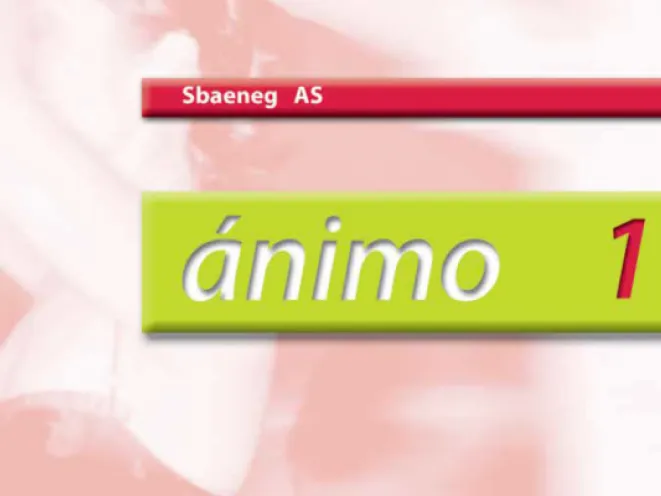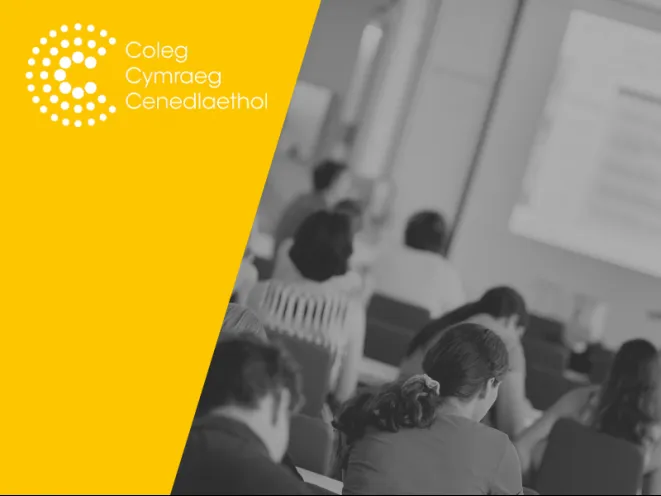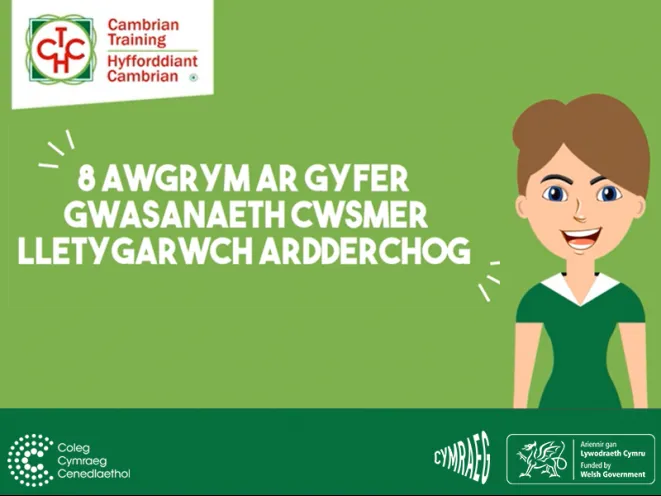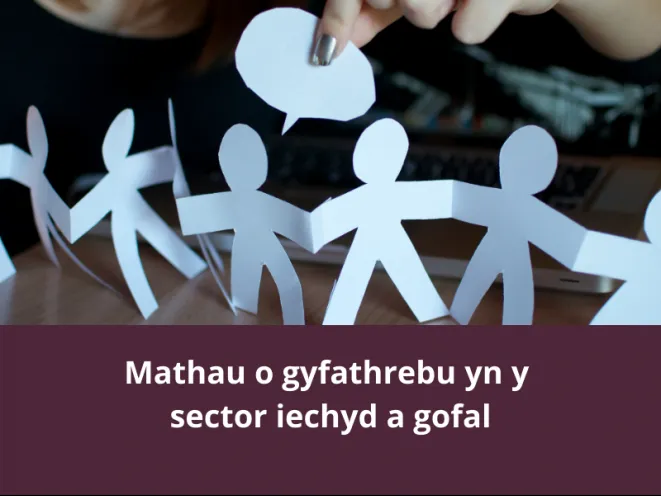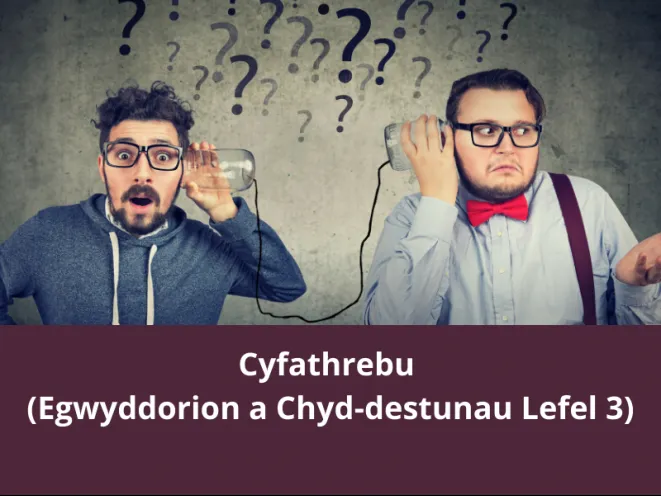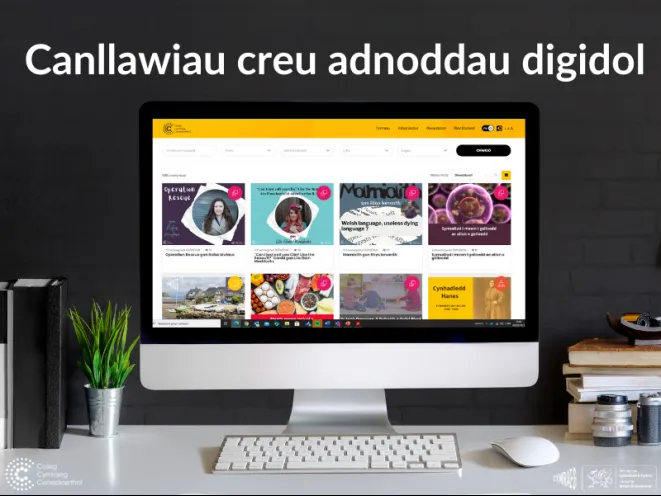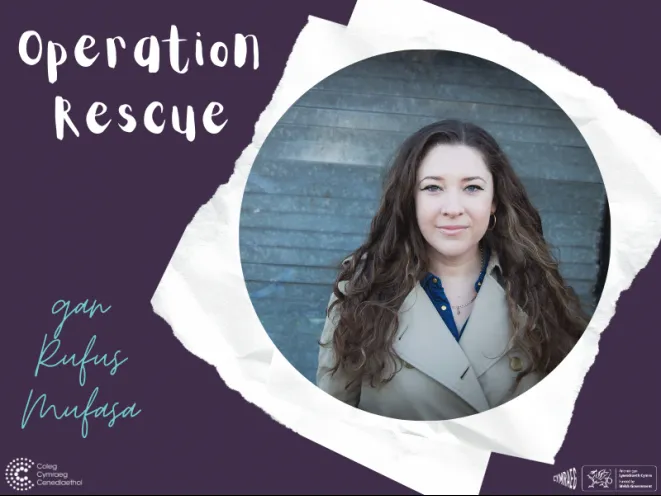Here is a link to a specific section on the North Wales Police website which contains resources to assist individuals who wish to develop their Welsh language skills. All roles within the NWP require a level of Welsh language skill. As part of the application process, individuals will be assessed on their spoken Welsh. The resources on the website help individuals prepare for the assessment. These resources are relevant to individuals interested in starting a career with the police.
North Wales Police Language Resources
Sgiliaith: Bilingual Teaching posters
Here is a series of posters by Sgiliaith that offer ideas on how you can start to use and introduce the Welsh language in your lessons. The posters are suitable for tutors and work based learning assessors, but would also be useful for teachers that are interested in incorporating more Welsh into their lessons. The poster series includes keywords on the following: Greetings Feedback Simple questions Bilingual Glossary for Tutors and Work based Learning Assessors The Advantages of Bilingualism Creating a Welsh Ethos in the Classroom Useful Resources Begin to Bilingualise an Online Lesson
Profion Ffitrwydd Website - How to conduct fitness tests
A website containing videos and written instructions on how to perform health-related fitness assessments, in accordance with ACSM Guidelines. The resource would mainly be useful up to level 4. The aim of this resource is to provide advice and guidance on conducting initial health screening and fitness assessments, in line with ACSM protocols. There is a video that explains and illustrates the protocol, and a supporting document which illustrates the protocol in written format for each of the following aspects: Health screening Participant instructions Blood pressure Resting heart rate BMI measurement Waist and hip circumferences Cardiorespiratory fitness Hand grip test Push-up test Sit and reach test There is a link to the website below:
Technical terminology for teaching through the medium of Welsh
Presenters: Professor Delyth Prys and Dr Tegau Andrews The aim of this workshop is to : Give an introduction to terminology standardization work, internationally and nationally, linking the theoretical and practical aspects, in order to explain the standardization process and its relevance to the work of the Coleg Cymraeg Cenedlaethol. Give staff and students at the Coleg Cymraeg Cenedlaethol a better understanding of the dictionary and terminology resources which are available, to help them write and communicate better using good, academic Welsh. Reveal how Welsh terms are coined and standardized, discussing the international standards which drive the process and introducing specific examples, so that interested parties can understand how these terms become part of our language. Provide initial guidance to authors, translators and project managers who have been funded by the Coleg Cymraeg Cenedlaethol to develop Welsh-language resources for students, explaining how terms are relevant to them and where terminology work fits within the timescale of creating resources. Content: A general overview of the dictionary and terminology resources available to staff and students of the Coleg Cymraeg Cenedlaethol. Practical support on how to use general dictionaries and on-line electronic terminology dictionaries. An explanation of how terms are standardized in Welsh, and the relevance of international standards to this process. An outline of the stages involved in developing resources for the Coleg Cymraeg Cenedlaethol, focusing on the role of terminology in these stages. At the end of the workshop, attendees should be able to: Have a better understanding of the importance of using standardized terminology in academic writing. Be able to use dictionary and terminology resources more effectively in their work and improve the standard of their academic Welsh. Know where to turn if they need further assistance with Welsh technical terms. Have a better understanding of the way in which terms are standardized for the Welsh language. Be able to plan new resources for students taking into account any essential terminology. Biographies: Professor Delyth Prys has been Senior Editor within the Centre for the Standardization of Welsh Terminology (now part of the Language Technologies Unit at Canolfan Bedwyr) since 1993, and has been the Head of the Language Technologies Unit since 2001. She leads a mixed team of linguists and software experts who develop innovative digital language tools for the Welsh language. Dr Tegau Andrews has been a Terminologist for the Coleg Cymraeg Cenedlaethol since 2009. During this time, she has developed Geiriadur Termau’r Coleg Cymraeg Cenedlaethol (the Coleg Cymraeg Cenedlaethol Terminological Dictionary) which has become one of the main terminological dictionaries for the Welsh language and includes definitions, diagrams and explanatory illustrations.
Online Research Conference 2021
This conference, held on 29 June 2021, was for anyone who is interested in multi-disciplinery academic research through the medium of Welsh. Scientists, humanists and sociologists from all over Wales and beyond were invited to share the results of their research and to meet other like-minded Welsh researchers. The aim of the conference was to give the next generation of academics the opportunity to present their research to an audience of peers. There was also an opportunity to network with Welsh-speaking researchers and to foster a wider community of academics who promote Welsh-medium provision in our universities. Click below to see a recording of the live conference that includes question and answer sessions on each of the presentations. There are also links to a series of research posters.
Animo (Welsh adaptation of original English resources)
The 'Animo' suite includes a textbook, grammar workbook and answers to the grammar workbook. They: provide comprehensive grammar and skills support, helping students understand and manipulate new language; support independent learning skills; provide end-of-topic tests to monitor progress. Mainly aimed at AS/A-Level Spanish candidates, the resources are also beneficial to students studying Spanish degree courses through the medium of Welsh. Due to copyright requirements, you will need to obtain a password to access the Animo resources. Complete the form and the Coleg will send you the password.
Behaviour Change Workshop
This resource is built on a series of behaviour change workshops. The resource is a presentation recording that conceptualizes rational and irrational behaviour, discusses the factors affecting the choice of Welsh medium higher education, and outlines a behaviour change framework and a worked example. The resource would be of relevance to anyone within the higher education sector seeking to use a behavioural approach to changing behaviour. Such an approach recognises the importance of framing decisions and the irrational character of behaviour, and has become popular amongst governments and policymakers. The presentation can be watched, and the worked example can provide some inspiration for using a behavioural approach.
Hospitality – Delivering Excellent Customer Service
Excellent customer care is an integral part of working in many areas but particularly in the field of hospitality. Below is a video which includes 8 suggestions for introducing excellent customer service in hospitality. Additionally there is a video which introduces Cambrian Training to the apprentice and outlines the range of services available. The resources below were developed by Cambrian Training with support from the Coleg Cymraeg Cenedlaethol. The content is considered good practice and could also be relevant to other apprenticeship providers in other fields.
Types of communication in the healthcare sector
This is a resource that highlights forms of communication in Health and Social Care. The resource applies to students studying level 3 concepts in the field such as Principles and Contexts or A levels. Because it is a common subject, this information can be useful to any student studying in health e.g. Occupational Therapy, Physiotherapy or working in social care in the community. This resource was adapted by the Coleg Cymraeg Cenedlaethol. Thank you to Llandrillo Menai Group for sharing the original material.
Communication (Principles and Contexts Level 3)
This is a resource to encourage and support effective communication in Health and Social Care. The resource is suitable for students studying level 3 concepts such as Principles and Contexts (Level 3). Because it is a common subject, this information can be useful to any student studying a health based subject, e.g. Occupational Therapy, Physiotherapy or working in social care in the community. This resource was adapted by the Coleg Cymraeg Cenedlaethol. Thank you to Llandrillo Menai Group for sharing the original material.
A guide to creating digital resources (Canllawiau Creu Adnoddau Digidol)
These guidelines present different things that should be considered when creating digital learning resources. The guide refers to the following elements: Research and planning Authoring the content Accessibility and copyright Adding a resource on the Porth Adnoddau Resource creation toolkit (a list of software and packages) Resource creation checklist Accessibility checklist In addition, there is a link to the Welsh Language Commissioner's Bilingual Design Guide. This guide talks about how to introduce both languages when designing material.
Operation Rescue by Rufus Mufasa
Poet and performer Rufus Mufasa reads one of her Welsh language poems, 'Operation Rescue' to celebrate International Mother Language Day 2021. Includes a video of the reading, a PDF copy of the words for study material and another short video where Rufus talks about her relationship with the Welsh language. © Rufus Mufasa 2021

